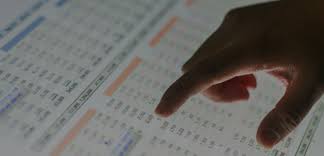Signs Your Investments Need Attention

Investing should be boring. That’s not say it’s up there with watching paint dry but patience is essential, often lots of patience. Some of the most successful investors pride themselves on waiting a long time before the hoped for results materialize. The results may not always be excellent, though proper analysis and selection often increase the likelihood of a good batting average. That’s true whether the holdings are stocks or mutual funds.
Even so, there can be developments along the way that may mean it’s time for action. Investing is analogous to gardening. You sow your seeds and watch your plantings grow. Still, there’s often weeding along the way. It’s no different with investing. You review the candidates, add what seems to make sense to your portfolio, and prune those whose progress doesn’t follow the expected path. (For related reading, see: Steady Growth Stocks Win the Race.)
Mutual Funds: The Challenges
Take mutual funds, for example. It’s well known that far too many folks pack their portfolios with the funds with the best recent records only to discover that past performance is just that: past performance. The well-known Dalbar study underscores the fallacy of chasing hot funds. The returns of those who have done so regularly fell far short of the major index returns. Don’t expect this to change.
One of the challenges facing mutual funds that have led the pack is what to do with the surge of incoming cash from investors hoping to get aboard. It’s one thing to do a great job of selecting holdings when a fund is relatively small, but as the fund’s asset base builds the managers have to select from a universe of increasing larger companies that are often less promising than those it had selected when its returns were strong.
Smaller funds can hold small companies that can expand at rapid rates. Larger funds can no longer make such investments since the position sizes would be much too big. Were there no limitations, they might end up owning all the outstanding shares. Obviously, that’s not going to happen.
As funds’ assets increase, they are forced to select holdings from a narrowing universe of large companies. This, in turn, leads to the increased likelihood that the holdings of the largest funds will have considerable duplication. (For more from this author, see: Stock Picking: Keys to Successful Investments.)
Some funds have dealt with this by closing to new investors so they can digest the flow of incoming cash. That’s a good sign. Others, however, have kept the green light on. That’s not a good sign.
Then there’s the issue of manager change. In most cases, the debut of a new manager is almost certainly an indication of a change in investment philosophy. It also means that the fund’s previous record is no longer meaningful. The name may be the same, but the game will be different.
Stocks: The Quirks
Stocks have their own quirks. Often the most problematical is when a company misses an earnings forecast. There are variations on this theme. One is when a company misses an earnings forecast, but revenues are on target. That may indicate a temporary rise in costs, so it may not be that bad.
Another is when a company’s earnings are on target, but they are below what’s known as the whisper number. The whisper number is speculation that’s discussed, though never issued as formal guidance. Or earnings may be on target while revenues are low. Whichever the case, Wall Street has been known to exact a hefty price for these kinds of disappointments.
Other things to watch for include dividend cuts, departures of key executives, closings of company divisions and testing failures (for drug companies).
For both stocks and funds, the meaningful issue is the impact on the future. If company developments point to a slowdown in earnings, it may be time to bail out. Similarly, if changes in funds lead to a drag on momentum, reevaluation may be called for.
Slow and steady can be an excellent formula, so long as the train stays on its tracks. (For more, see: 5 Factors to Consider Before Picking Stocks.)








